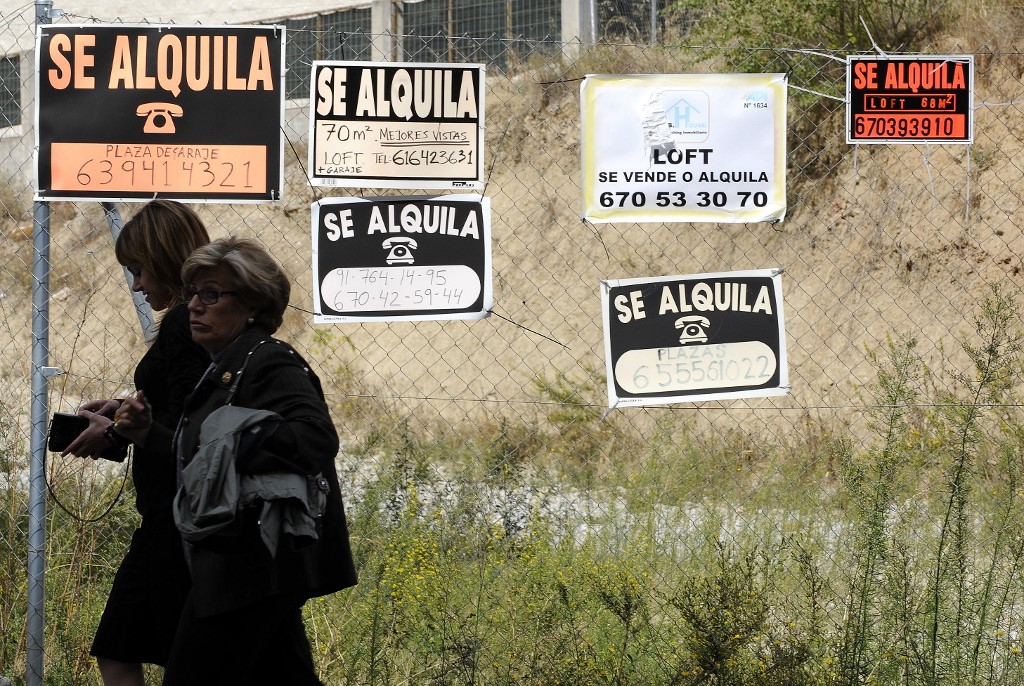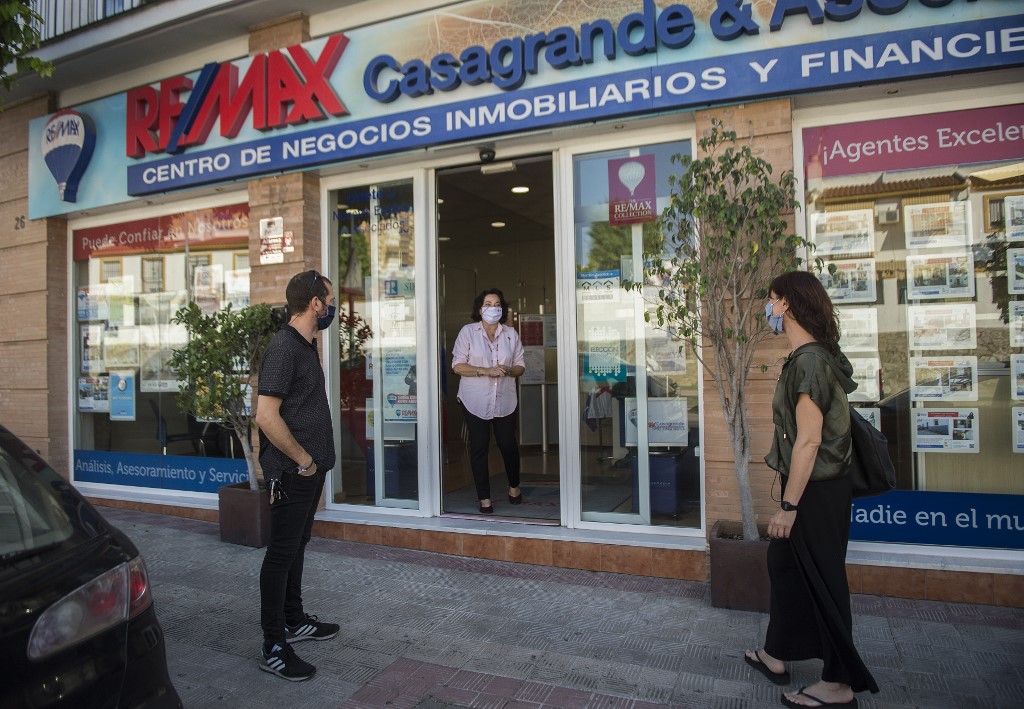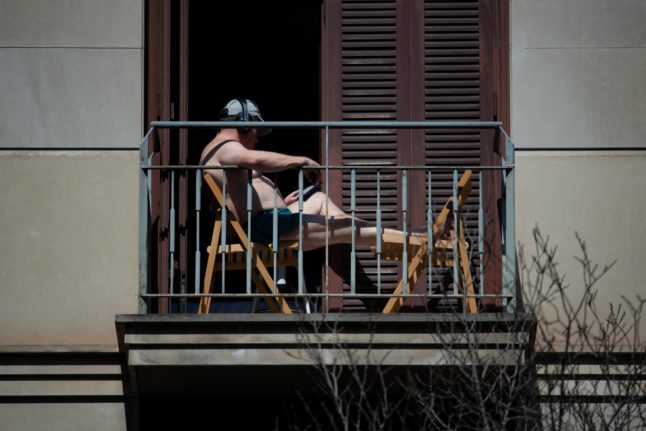There aren’t many silver linings to the coronavirus pandemic if you live in Spain, but the shakedown of the country’s overinflated property market could be one of them.
Back in August 2020 we wrote about how the dramatic drop in tourists was resulting in more property owners making their short-term rentals in central city locations available to long-term tenants who were previously priced out.
By the end of the year, 64 percent of these holiday lets had been turned into long-term rental properties, and according to property portal Fotocasa at least half of these are expected to carry on catering to permanent tenants in 2021.
“Spain’s main markets have experienced falls in the price of properties due to the significant increase in the available offer, which in some markets has more than doubled” added Spain’s other big rental site Idealista, “as for three months hardly any rental transactions were carried out” due to the strict lockdown.
That hasn’t meant that prices have been driven down evenly everywhere, and there was plenty of volatility in the rental market in 2020 which led to average rents actually increasing in some cities in the midst of the coronavirus crisis.
READ ALSO:
- Spain’s property prices to see Europe’s biggest drop in 2021 and then rise in just one year: S&P
- MAP: Where were the cheapest places to rent in Spain in 2020?
But by November 2020, all of Spain’s expert property sites agreed that it was cheaper across Spain to rent than in November 2019.
The biggest drops according to Idealista were in Barcelona (-7.3 percent), Seville (-5 percent), Palma de Mallorca (-4.9 percent), Madrid (-4.8 percent) and Málaga (-4.5 percent).
Property experts forecast that although rents are unlikely to plummet in 2021, price reductions will continue during much of 2021.
This all means that the time is right for tenants looking for a good deal on a new rental property to make a move, or to negotiate the rent they’re currently paying with their landlord.
The following are some useful tips to help you negotiate the best price.
If you want to stay in your home but pay less:
Find out how much it really is worth
Check on Fotocasa, Idealista and other property sites how much flats in the same area with similar features are going for (size, number of rooms, lighting, year of construction, type of heating, air conditioning, etc.).
Idealista has a useful tool that allows users to compare average prices in different neighbourhoods and even streets.
Another option is to contact a real estate agent and tell them you own the property and you’re looking to rent it out. Invite them round for an evaluation; it’s likely that they’ll suggest a lower rental price than if you were a tenant looking for a place, as their main goal is to sign a deal quickly to get a commission.
Neighbourhood watch
Are there a lot of ‘for rent’ signs going up in your area? Are many people leaving?
In buildings that are run by companies in particular these trends can give you more bargaining power, allowing you to suggest a drop in rent of €100 or the provision of a free parking space.
It’s also worth keeping an eye out for other properties up for rent in your building so you can see what it’s going for compared to yours.

Collect the data and put pen to paper
Arm yourself with any information you’ve found that strengthens your case, and factor in any possible financial hit that you’ve taken as a result of the pandemic.
It could be that you have the gift of the gab and speak Spanish fluently, but putting your request for a rental price reduction in writing, with all the numbers and information you’ve compiled, will come across as more professional and increase your chances of getting what you’re after, according to property analyst Borja Mateo.
It’s even worth stressing that the rate of non-payment of rent in Spain has increased by 70 percent but that you’ve paid your rent religiously every month (if it’s the case) and that they’ll struggle to find a tenant as trustworthy as you in the current climate.
Make an inventory of the property’s problems
If there’s plenty that needs fixing in your rental property, make a list of all the flaws and find out how much it would cost for them to be fixed or improved.
It could be that the windows don’t have double glazing or the property doesn’t have proper insulation, causing your energy bills to go through the roof in winter.
Get a budget and use this as leverage to either renegotiate your rent down in accordance with the quality of the property, or to at least get the landlord to pay for the repairs or changes that you want. One or the other.
Tell them you’re leaving
If the landlord isn’t budging, tell them that you’re leaving and how they’ll struggle to find a better tenant than you.
If that is indeed the case, they may have enough sense to realise that going to the trouble of finding someone new might not be worth the trouble if what you’re asking for is a rent drop of €50 to €100.
They may also be understanding if you explain your personal circumstances and how increased costs or a pay cut are making it hard for you to make ends meet.
It’s worth calling their bluff as long as negotiations are kept cordial.
Sign a new contract
If they agree to drop the price, get them to draft a new rental contract which you both sign.
Rental contracts signed between 2013 and 2019 fall under Spain’s “Ley de Arrendamientos Urbanos” law, which allows landlords to put up the price after three years.
This clause was changed in 2019 to five years, which may play in your favour if you’ve been living in the property since before then.
If you’re looking to rent a new home
Put the realtors to work
In general, real estate agencies want you to pay as much as possible or for landlords to drop the price as much as possible, anything to make the deal go through and for them to get their cut.
Ring up a few agencies, tell them exactly what you’re after, what you’re willing to pay and say how you’re prepared to pay a few months in advance as a hook.
Keep regular communication with them to convince them that once you find what you want, you’ll agree to it and they’ll get their commission, making it worthwhile for them.
Unfortunately, not all realtors put in the hard grind and yet they still get their one month’s rent as commission if the deal goes through.
There isn’t a law which explicitly prohibits tenants from paying this fee to an agency if they haven’t done anything to help, but there is a clause relating to guarantees.
If they’re unwilling to budge on the commission they got for nothing, ask them for a complaint form and say you’ll take it up with “Consumo” (Spain’s Ministry of Health, Consumption and Wellbeing).

Check how long the listing has been posted
The longer the property has been on the market without being rented, the better the chances you have of being able to negotiate the rent down.
It could be that a stubborn landlord is the main reason why the property in question has been lying empty for months, so if this is the case suggest paying an extra month or two at your rate to cover the losses they’ve incurred.
If you really like the property and a couple months later it’s still empty, try again, explaining to the landlord how by this stage they may as well have rented it out to you at your price given how much money they have lost.
Poker face
It’s an obvious tip but one to always keep in mind: don’t express immediate interest. And take the attitude that the rent is too high no matter how much it is.
Have a look at houses for sale
The same negotiation policy that applies to flats that haven’t been rented in months can also apply to those that are up for sale.
If you find one you like, you can suggest to the owner that they’d be better off renting out to you rather than waiting more time for a buyer to eventually rock up.
You may have to sign a contract which means you have to leave the property with short notice or that you have to allow potential buyers in to see it, but this can also be useful to negotiate your rent down.
Pay less by coughing up more upfront
If a landlord wants to rent out a property to you for say €800 a month and you consider it too expensive, suggest paying 6 months upfront at €600 per month.
They get security and quick cash whilst you save a lot in the long run.



 Please whitelist us to continue reading.
Please whitelist us to continue reading.
We renegotiated our 1038€ rent in August to 850€, 6 months upfront at sign of new contract.
We renegotiated our 1038€ rent in August to 850€, 6 months upfront at sign of new contract.